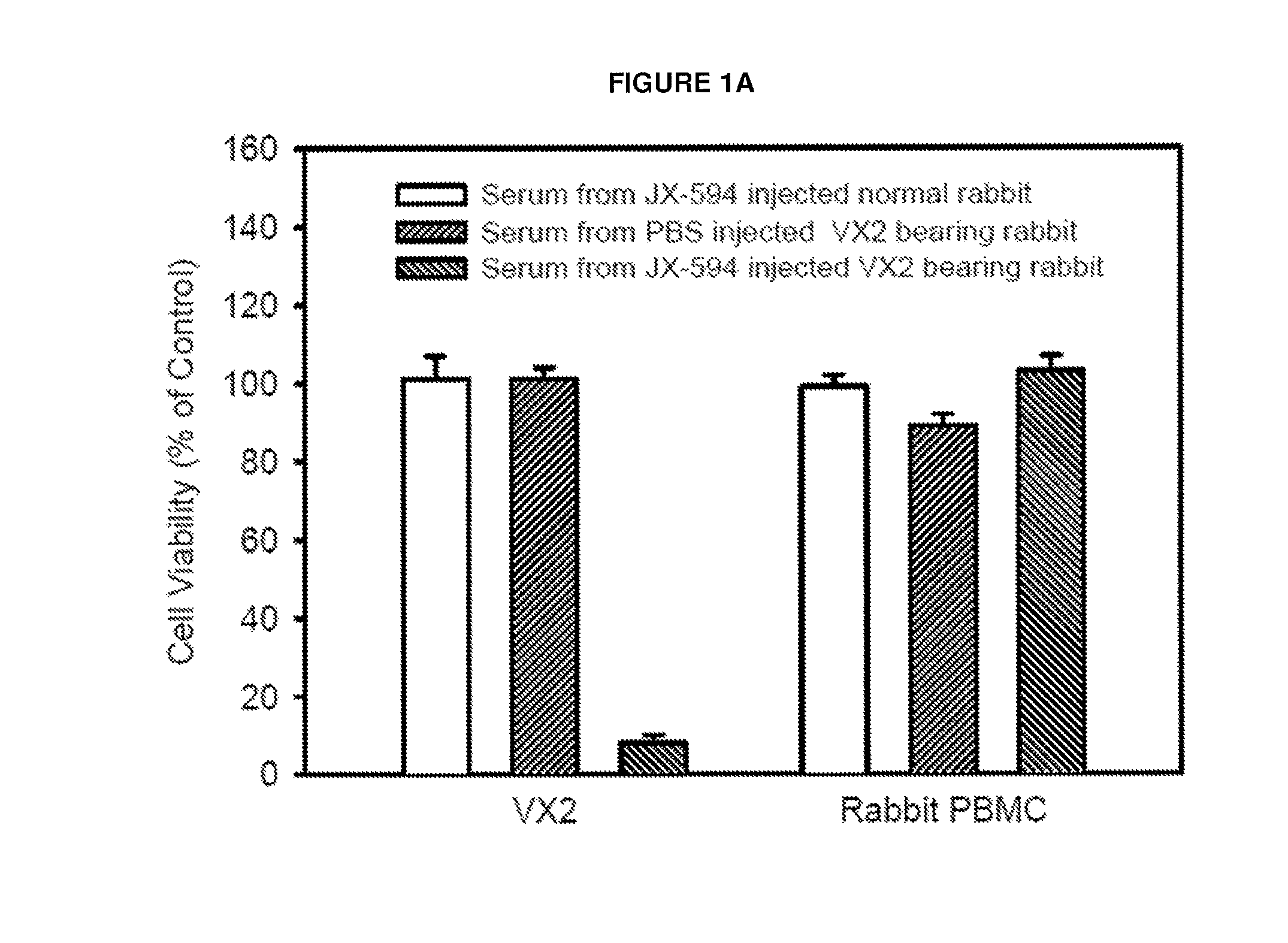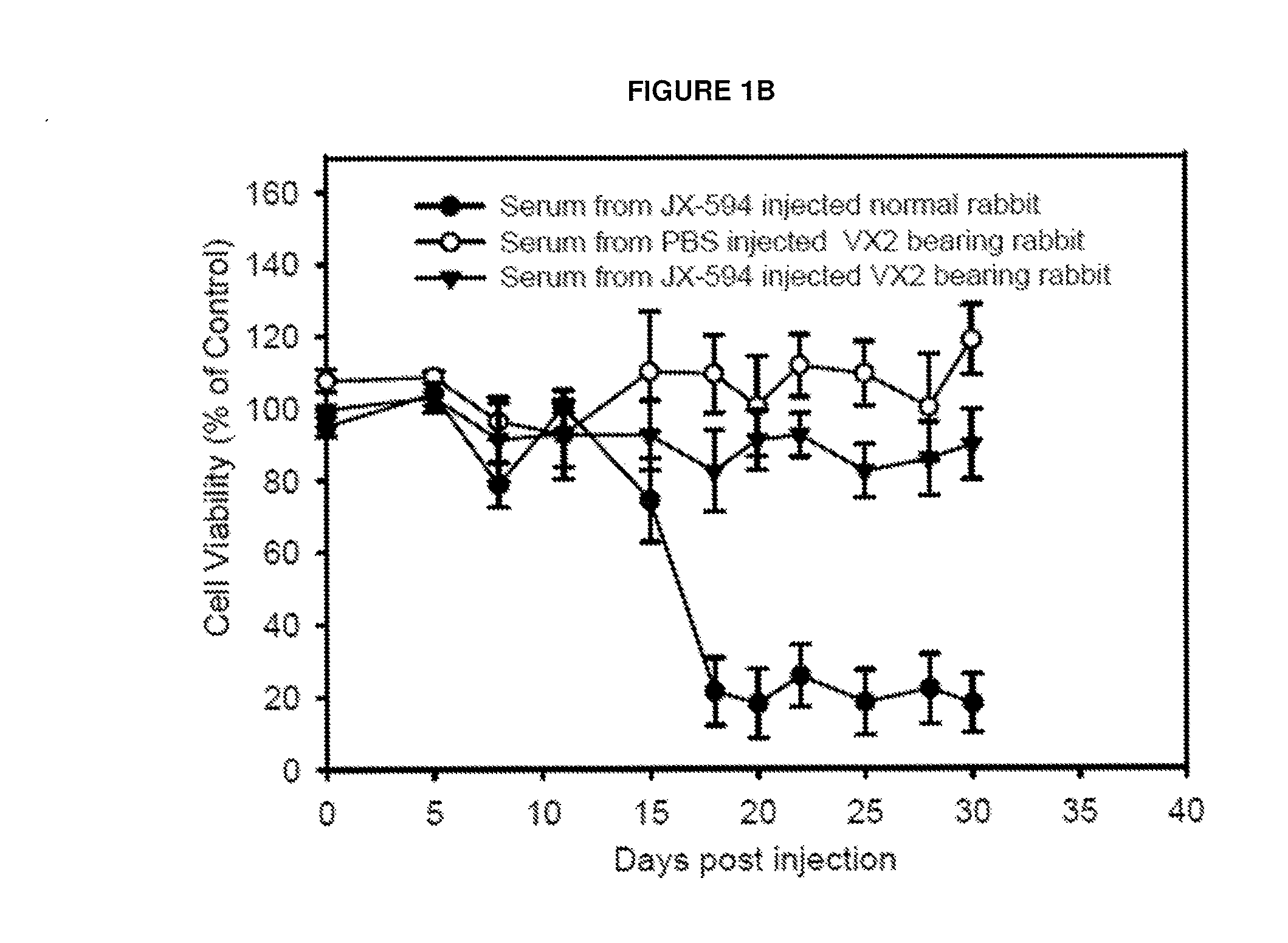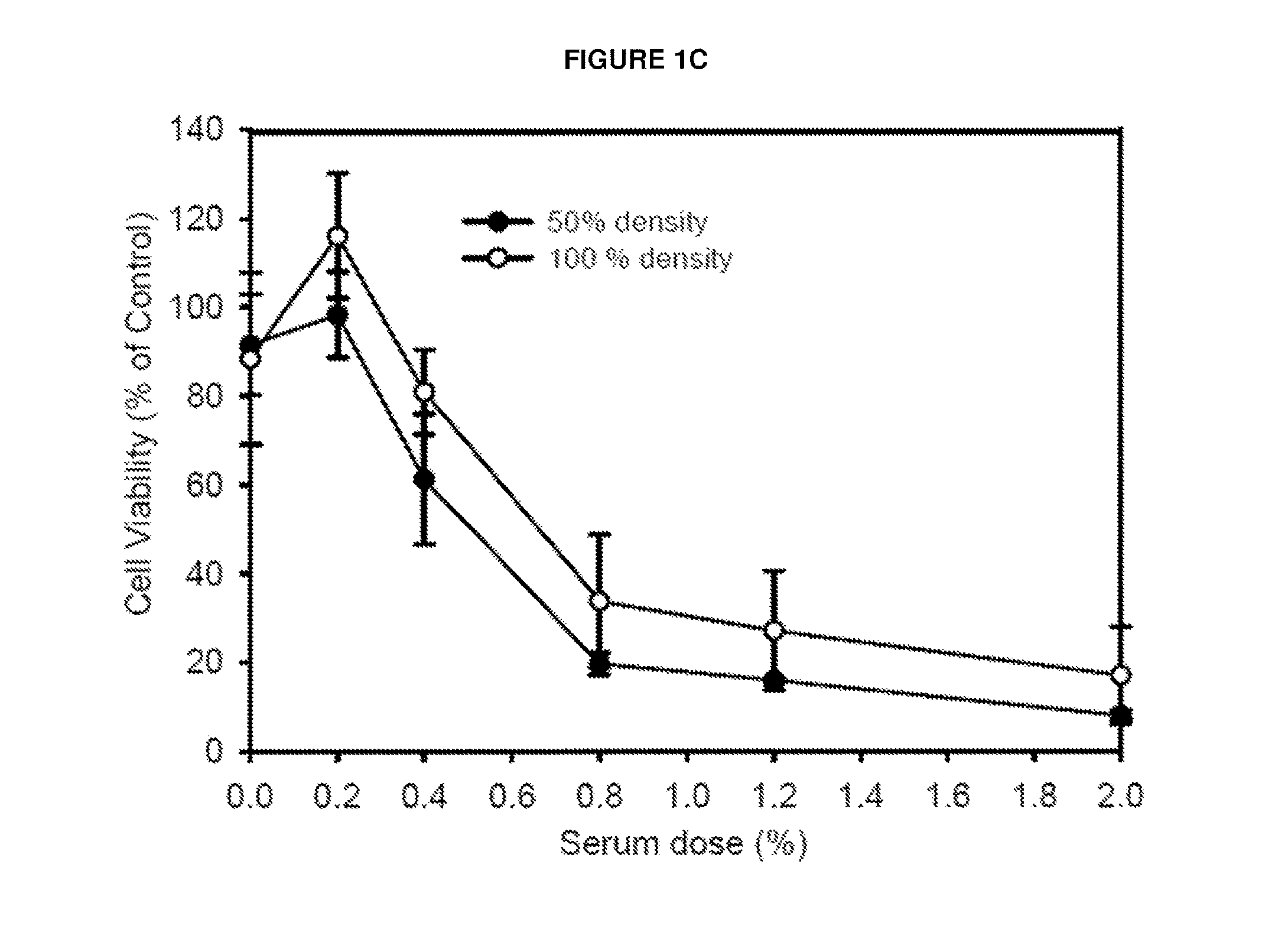Generation of antibodies to tumor antigens and generation of tumor specific complement dependent cytotoxicity by administration of oncolytic vaccinia virus
- Summary
- Abstract
- Description
- Claims
- Application Information
AI Technical Summary
Benefits of technology
Problems solved by technology
Method used
Image
Examples
example 1
Methods
[0080]Viruses and Cell Lines:
[0081]JX-594, Wyeth strain vaccinia virus (Thymidine Kinase [TK]-inactivated, expressing hGM-CSF) was used throughout this study and was prepared as published previously24. SNU349, SUN482 and SNU267 (human renal cell carcinoma; obtained from Korean Cell Line Bank [KCLB]) and SNU475 & SNU398 (human hepatocelluar carcinoma; obtained from KCLB), were cultured in RPMI 1640 (Gibco) supplemented with 10% FBS (Hyclone) with penicillin and streptomycin. HOP62, H157, H460 and PC10 (human lung carcinoma; obtained from American Type Culture Collection [ATCC]), HepG2 (human hepatocelluar carcinoma; obtained from ATCC), SF-295 (human gall bladder cancer; obtained from ATCC), PC-3 (human prostate cancer; obtained from ATCC), PANC-1 (human pancreatic cancer; ATCC), MCF-7 (human breast cancer; ATCC) were cultured in DMEM medium containing 10% FBS with penicillin and streptomycin. MRC-5 nontransformed cells (lung fibroblast; ATCC) and HUVEC (endothelial cells; ATC...
example 2
CDC is Induced in Both Animal Models and in Human Patients
[0094]Decreased Cell Viability Observed Upon Incubation of Tumor Cells with Serum from Tumor-Bearing, JX-594-Treated Rabbits.
[0095]To investigate induction of CDC in a rabbit model, serum was collected from rabbits bearing the VX2 adenocarcinoma implanted into muscle treated with JX-594 or PBS control. Serum collected at day 28 post injection was added to VX2 cells or rabbit peripheral blood mononuclear cells (PBMCs) in vitro at a concentration of 3%. A significant decrease (approximately 90%) in cell viability was only observed in cells incubated with serum from JX-594-treated, VX2 tumor-bearing rabbits (FIG. 1a). Incubation of VX2 cells with serum from VX2 tumor-bearing rabbits treated with PBS or non-tumor-bearing rabbits treated with JX-594 did not exhibit decreased cell viability. Furthermore, PBMC viability did not decrease significantly upon incubation with serum from any treatment group. VX2 cell viability was subsequ...
example 3
Decreased Cell Viability is Due to Antibody-Mediated Complement-Dependent Cytotoxicity
[0098]We next tested the contribution of antibodies and complement to evaluate the mechanism of by which serum from JX-594 treated patients mediates cancer cell cytotoxicity. Serum from JX-594-treated patients was heat-inactivated to inhibit any complement activity. A column which binds IgG was used to remove antibodies from serum (refer to experimental outline in FIG. 3a). Baseline serum (prior to JX-594 treatment, Serum A), serum obtained 92 days post JX-594 treatment (Serum B), heat-inactivated Serum B (Serum C) and Serum B which was passed through the IgG resin (Serum E) were added to cancer cell line monolayers at a concentration of 5%. Serum collected at baseline did not result in decreased cell viability while serum collected 92 days post JX-594 treatment initiation exhibited potent anti-tumoral activity. However, cells remained viable upon heat-inactivation or IgG depletion. Furthermore, re...
PUM
| Property | Measurement | Unit |
|---|---|---|
| Composition | aaaaa | aaaaa |
| Size | aaaaa | aaaaa |
| Therapeutic | aaaaa | aaaaa |
Abstract
Description
Claims
Application Information
 Login to View More
Login to View More - R&D
- Intellectual Property
- Life Sciences
- Materials
- Tech Scout
- Unparalleled Data Quality
- Higher Quality Content
- 60% Fewer Hallucinations
Browse by: Latest US Patents, China's latest patents, Technical Efficacy Thesaurus, Application Domain, Technology Topic, Popular Technical Reports.
© 2025 PatSnap. All rights reserved.Legal|Privacy policy|Modern Slavery Act Transparency Statement|Sitemap|About US| Contact US: help@patsnap.com



